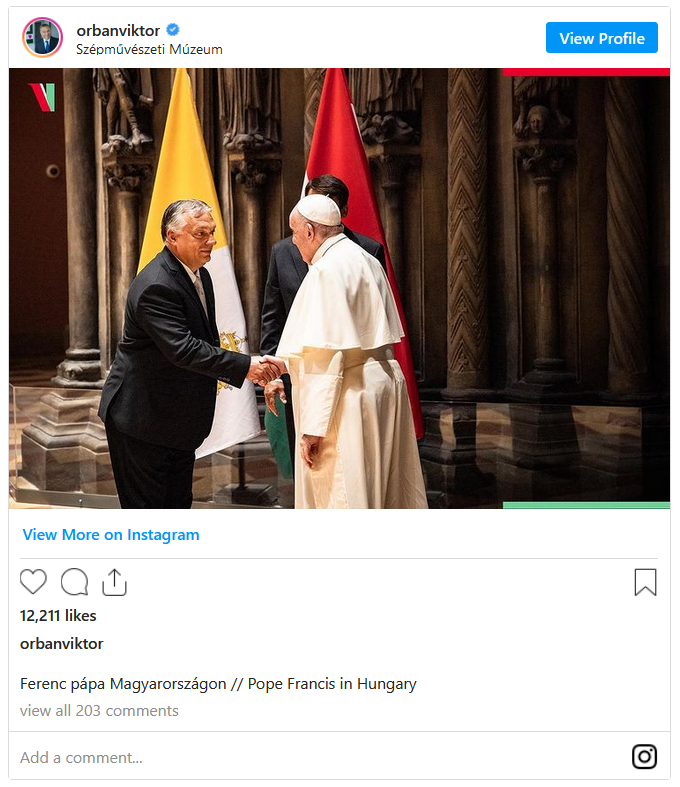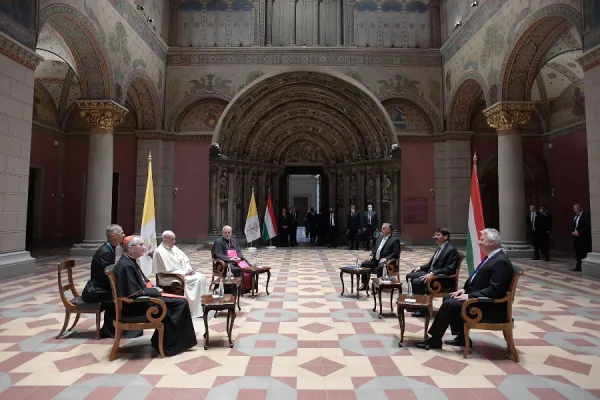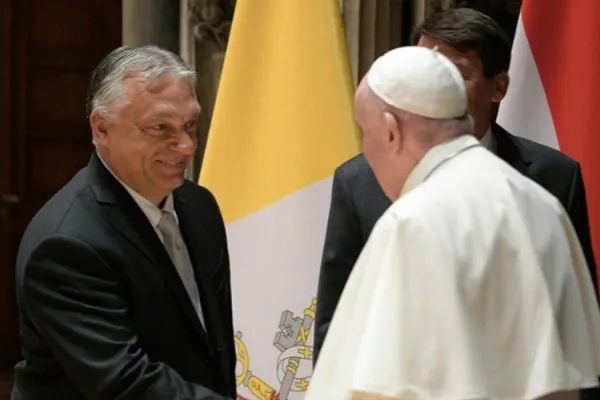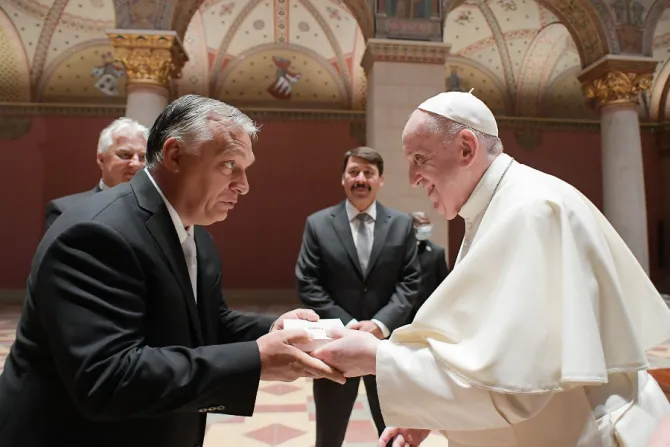Pope Francis greets Hungarian Prime Minister Viktor Orbán in Budapest, Sept. 12, 2021./ Vatican Media/ EWTN.
Pope Francis arrived on Sunday morning in Hungary, where he met with Prime Minister Viktor Orbán.
The pope’s arrival in the capital, Budapest, on Sept. 12 marked the 84-year-old pontiff’s first international trip since his colon surgery in July.
Pope Francis will spend roughly seven hours in Hungary, where he will offer the closing Mass of the International Eucharistic Congress, before flying on Sunday afternoon to Slovakia, where he will visit four cities, returning to Rome on Sept. 15.
The pope’s meeting with Orbán, with whom he sharply disagrees on migration, and Hungarian President János Áder, who offered a personal testimony to his Catholic faith at the Eucharistic congress, took place at the Museum of Fine Arts in Budapest. The private meeting lasted slightly longer than scheduled.
A photograph of the three men meeting was posted on Orbán’s Instagram account.

Another photograph showed the men sitting inside the museum, with the pope seated on one side, flanked by senior Vatican officials, and Orbán, Áder, and Zsolt Semjén, Hungary’s deputy prime minister, on the other.
A Vatican statement said: “The meeting with the President, the Prime Minister and the Deputy Prime Minister of Hungary took place according to the program, in a cordial atmosphere and ended at 9:25 a.m.”

“Present at the meeting with the Holy Father were His Eminence Cardinal Parolin, Secretary of State, and His Excellency Archbishop Gallagher, Secretary for Relations with States.”
“Among the various topics discussed were the role of the Church in the country, the commitment to the protection of the environment, the protection and promotion of the family.”
Immediately after the meeting, the pope gave a speech to the bishops of Hungary. He then took part in an ecumenical meeting with leaders of Hungary’s Protestant Christians, as well as representatives of the country’s Jewish communities.

“The God of the covenant asks us not to yield to separatism or partisan interests. He does not want us to ally ourselves with some at the expense of others,” the pope said in the meeting.
“Let it never be said that divisive words come from the mouths of religious leaders, but only words of openness and peace. In our world, torn by so many conflicts, this is the best possible witness on the part of those who have been graced to know the God of the covenant and of peace,” he added.
Pope Francis denounced “the threat of anti-Semitism still lurking in Europe” and recalled the life of Miklós Radnóti, a Jewish Hungarian poet who was killed in the Holocaust.
“Imprisoned in a concentration camp, in the darkest and most depraved chapter of human history, Radnóti continued until his death to write poetry,” the pope said.
He said that his surviving poems from his imprisonment testified to “the power of his belief in the warmth of love amid the icy coldness of the camps, illuminating the darkness of hatred with the light of faith.”
Pope Francis said: “The author, crushed by the chains that constrained his soul, discovered a higher freedom and the courage to write that, ‘as a prisoner… I have taken the measure of all that I had hoped for.’”
“Our voices, dear brothers and sisters, must not fail to echo that Word given us from heaven, echoes of hope and peace. Even if no one listens or we are misunderstood, may our actions never deny the Revelation to which we are witnesses,” he said.
Source: CNA

